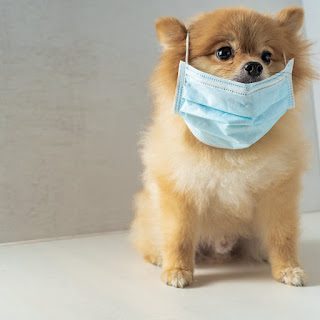Tips to care for your Pets during the Corona Pandemic
Like we experience fear and anxiety during this period, pets can be also more likely to develop emotional & behavioral problems such as aggressiveness, fear, etc. So, it is important to take care of them as well as yourselves because of social distancing / staying at home. First of all be assured that pets cannot transmit Covid-19. Only negligible cases of pets having Covid-19 have been reported, however there are no cases reported on humans having Covid-19 transmitted from pets. But still if you suspect that your pet is having Coronavirus, do consult your vet.
There are references in Veda about Veterinary science for animal welfare like Ashwa Ayurveda (for horses), Pashu Ayurveda (For animals), Gaja Ayurveda (for elephants), etc. Since animals like horses & elephants were used in warfare, Ayurveda has mentioned the ways to care for animals and the treatment of diseases as well.
Now a days, animals and birds have become a part of our life. Most of us have pets. It is necessary to take proper care of them during this crisis period. This sudden shutdown situation will be troubling them definitely just like its troubling us human beings. How to keep them happy & engaged while caring for your own safety?
- Hygiene - Make sure to wash your hands thoroughly and use sanitisers every time before & after touching or playing with them, walking them, feeding them.
- Play time - Play with them at home or in the garden or terrace. Continue the walking routine twice a day either in your garden or terrace or outside. Make sure ensure that they are clean before going back home as they might pick up dirt from outside. Wipe their paws with soap water every time they come back home.
- Grooming session - Massage them with coconut oil once or twice a week. This will help them to relax especially if they are aggressive, also it will make their coat shiny. Bathe & Brush them regularly. Trim their nails neatly.
- Feeding time - Feed them quality food. Sometimes as we are at home, we tend to feed them frequently, avoid it. Occasional snacking is okay though. Do not feed them with ice creams or heavy food items as they have less exercise activity now.
- Ayurveda Supplements - Add Turmeric & Triphala ¼ tsp each in their meal once a day to enhance their immunity.
- Teaching time - Teach them new commands or tricks with treats.
During this Coronavirus Pandemic while most of us stay indoors which is creating lot of stress in us, pets are our best companions who shower us with their love and makes us feel better. So, make sure to spend some quality time with them.

Comments
Post a Comment